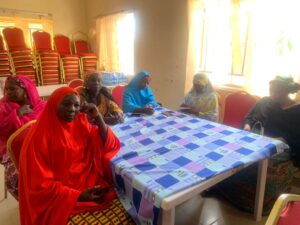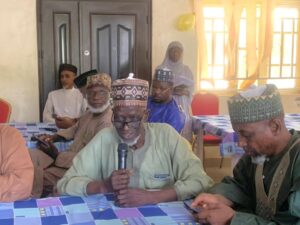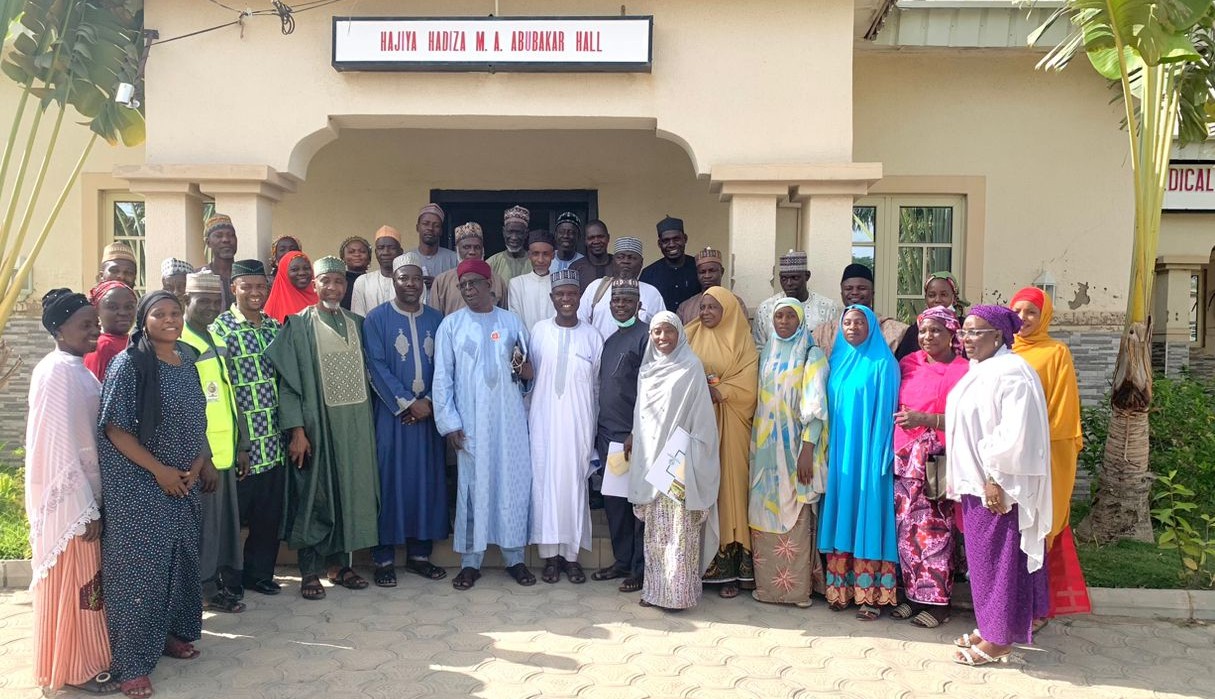Reported by Idris Mariam
Climate change is affecting everyone in different region, the fight to tackle the impact of climate change is paramount.
In this regard, Climate and Sustainable Development Network (CSDevNet) the National Designated Platform for the Pan African Climate Justice Alliance (PACJA) is highly involved in advocacy training Under the African Activists for Climate Justice (AACJ) project and has been on the fore front for Climate Justice in the six-geopolitical zones of Nigeria.
Through its North-East implementing partner Forward in Action for the Conversation of Indigenous Species (FACIS) and United Religious Initiative (URI), CSDevNet organized a town hall meeting for farmers and relevant stakeholders in Bauchi State on Saturday 18th November, 2023 at the Medical and Health Workers Union of Nigeria Conference Hall.
The aim of the meeting was to deliberate the need for effective solutions through collective action and innovation.
The townhall meeting brought together over 20 farmers, government representative from the state ministry of Agriculture, Environment, health, state house of assembly, academia community representatives, women, young people, and the media among others, with the discussion on the need for them to work collectively towards ensuring positive solutions to the impact of climate change in the North-East which is faced with drought and other climate related problems.
The event provided the opportunity for participants to understand and learn climate change impact on the agriculture which include change in rain variation, water scarcity, increase in demand for food, migration due to insecurity caused by unfavorable climate condition.
Dr. Salisu Ibrahim Waziri the focal person for FACIS stated that the importance of this townhall meeting is to discuss the Push back on climate impacts and the Power of Collective Action. He urged all experts present that cut across government, policy analyst, legislative, farmers and academia to create solutions to the already existing problems.

Mr. Usman Inuwa the North-East zonal coordinator welcomed the participants and expressed his gratitude to CSDevNet for their support in making sure the region is also involved in the fight for climate Justice
On behalf CSDevNet the Program Assistant Idris Mariam gave her remarks highlighting the importance of the meeting to create awareness on climate change impacts in Nigeria and urge have everyone to participate in order to have a fruitful deliberation in the cause of the meeting.
In the cause of the event, comments and contributions included;
Mrs. Saratu Magani, the leader of the Small Women Farmers Association of Nigeria (SWOFAN), noted that the change in rain variation has affected their farm produce. How does the change affect women in farming?
With the increase in drought, flooding, etc., women are more affected, as women suffer the most from climate change. She noted that the budget line for women should be at least 10% allocated to women. She indicated that when it comes to agriculture, women should be at the forefront.
Mr. Sulaiman Maidawa, leader of the Men Farmers Association, noted that since 1999, no program has been initiated to support livestock farming in Bauchi State. He stated that climate change has affected the environment by causing some of their wild life species to go extinct and some crops to dry up before harvest due to drought.
He indicated that 5 years ago he harvested 26 large bags of rice, and presently he harvests 12 small bags of rice, and the numbers keep declining because of the impact of climate change, the cost of fertilizers, etc.
Dr. Yayaha Adamu, chairman of the Agro-Forestry Association, stated that the excess rain during the rainy season washes away their crops, and they have adopted indigenous knowledge to prevent floods by packing sand in sack bags to block those channels through which water flows to protect their crops.
Bello Galoji from the religious group underscores the need for regenerative agriculture, stating its importance in his words: “It is an old practice but a very effective climate-smart agricultural practice”.
Dr. Mohammed Sanusi, Assistant Professor from the Abubakar Tatari Polyethnic, noted that there is a need for policy reform in convening climate change education in schools.
Musa Shehu, the CEO of Landscape Designers, Orchard Developers and Consultancy Service, highlighted the need to practice afforestation in his words: “It is the solution to drought; everyone should adopt the one-man, one-tree in order to have sustainable development”.
He stressed the need for individuals and the government to develop the orchard, planting or transplanting windbreaks and economic trees that would protect farm land and also serve as a source of livelihood for the people.

Some of the challenges highlighted were;
Limited resources for farming, negligence of women’s role in agriculture, Climate change is affecting communities, posing a security threat due to a lack of access to water and farmlands, lack of implementation of policies from the government on deforestation, climate change has brought about pesticides and herbicides that are affecting their farm produce, there is a high level of women’s illiteracy in education and awareness of climate change, lack of sustainability in project initiatives among others.
The following were the recommendations from the participants:
- There should be a tree planting campaign by One Man, One Tree to combat drought in the region, which will bring up to 200 trees in the next two years.
- Proper sanitation within communities.
- There is a need to educate farmers on using variety or hybrid seedlings.
- Farmers should also be educated on using the NiMet information for farming.
- The need for conducting research on indigenous trees aligns with our health needs before planting.
- Construction of many earth dams.
- Increase awareness about the use of organic manure among farmers.
- Creation of grazing land by the government and the re-establishment of cattle ranches.
- Adopting the re-use and recycle model to help save costs and protect the environment.
- Effective use of the prediction is modest for soil testing before planting.
- Adopting the water harvest practice to sustain farming in times of drought.

